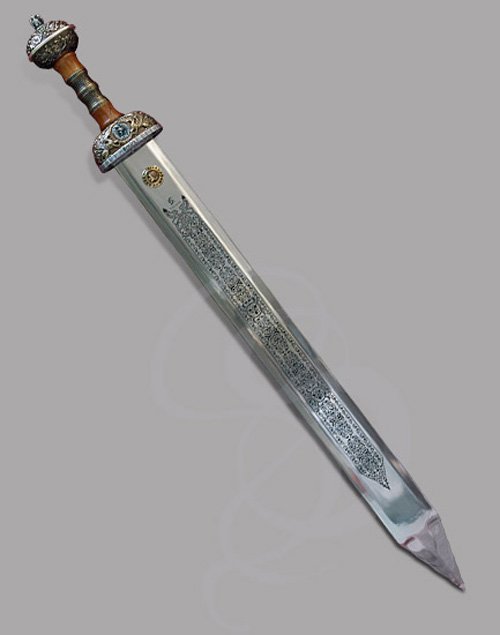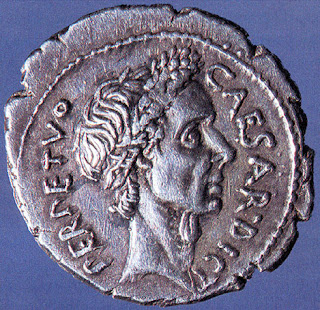Roman Soldiers (Soldats romains)
[updated on March, 2012]
From the era of Alexander the Great, many Israelites lived in Egypt.
Even the family of child Christ Jesus moved one time to Egypt. Accordingly, Israelites 2000 years ago must have well known past events related to Caesar and Cleopatra. Even before the birth of Christ Jesus, Caesar and Cleopatra traveled on land through Palestine. Israelites 2000 years ago must have well wondered how great and gorgeous Caesar and Cleopatra were.
Their wonder must be reflected in Christianity or teaching in Christ Jesus. When He mentioned worldly wealth and glory, it must have been directed to Caesar and Cleopatra who must have mesmerized Israelites at the time.
SECTION I: Roman Empire vs. Persian Empires
Harran was called Carrhae under the Roman Empire.
http://www.vivonet.co.jp/rekisi/a03_makedonia/parthia.html
A great battle was fought here, probably resulting in Romans' realization that they could not be another Alexander the Great.
The Battle of Carrhae, fought in 53 BC near the town of Carrhae, was a major battle between the Parthian Empire and the Roman Republic. The Parthian Spahbod Surena decisively defeated a Roman invasion force led by Marcus Licinius Crassus. It was the first of many battles between the Roman and Persian empires, and one of the most crushing defeats in Roman history.Today, no descendants of Caesar or contemporaries of Caesar are identified in Italy. Their DNA is unknown. But, we may have a clue.
...
However, the most immediate effect of the battle was that Carrhae was an indirect cause for the fall of the Republic, and thus the beginning of imperial monarchy at Rome. Sulla's first march on Rome in 88 BC had begun the collapse of the republican form of government, but the death of Crassus and the loss of his legions utterly destabilized the balance of power at Rome.[30] Along with the death of Julia, Pompey's wife and Caesar's daughter, Crassus' death severed the ties between Caesar and Pompey; the first Triumvirate no longer existed. As a result, civil war broke out, Caesar won, and the Republic quickly became an autocratic dictatorship.
http://en.wikipedia.org/wiki/Battle_of_Carrhae#Legacy
SECTION II: Roman Soldiers in Han Dynasty
In a theory 6,000 Roman soldiers disappeared after the death of Crassus. They ran through the surrounding camp of Parthian troops and moved to the east instead of returning to home to the west.
The battle is also believed to have eventually led to the first Sino-Roman relations. According to Pliny, in 53 BC, after losing at the battle of Carrhae, 10,000 Roman prisoners were sent by the Parthians to Margiana to help guard the eastern frontier of the Parthian Empire. The Han Chinese later captured this area and the Roman prisoners were likely among the first Europeans to meet the Chinese directly.[29](This war symbolized the limit of power of the Romans in invading the east of the Euphrates.)
According to Homer H. Dubs, eventually part of this legion was recruited as mercenaries by the Xiongnu. They battled with the Chinese during the Battle of Zhizhi, where they were captured by the Chinese and moved to Liqian village, Yongchang County.
http://en.wikipedia.org/wiki/Battle_of_Carrhae#Legacy
According to a Chinese history book, the History of the Former Han Dynasty, composed in the 5th century, Han troops met a band of soldiers looking and armed like Roman soldiers in the western border of the Han empire in 36 BC. They submitted themselves to the Han troops to be hired as border security force. So, it seems that Roman soldiers took 17 years to travel from Asia Minor to western China through Central Asia.
And, today their descendants still live in a village, Jinchang of Yongchang County of Gansu Province, in western China, as villagers' DNA shows their racial aspect as European origin. (http://www.recordchina.co.jp/group/g6454.html)
(This theory was first presented by American Oxford scholar Homer Dubs, though there are some arguments about it :
Another direction Dubs’ interests took him was the pursuit of contacts between Han China and the Roman empire. He wrote several articles on the subject, culminating in the controversial A Roman City in Ancient China.[3] This work purported to show that a Roman legion that had been part of the army of Marcus Licinius Crassus defeated at the Battle of Carrhae in 53 B.C. had settled in Northwestern China. The defeated legion, Dubs speculated, had been relocated further east by the victorious Parthians, for whom they fought in a battle against the Han. Defeated again, they were settled at a place called Liqian located in modern Yongchang County, Gansu province. Although this story has been seized upon by enthusiastic Chinese of the area and non specialist Westerners, at least two eminent Chinese authorities have shown that the notion has serious shortcomings.http://en.wikipedia.org/wiki/Homer_H._Dubs)
(Click to enlarge.)
http://d.hatena.ne.jp/johnfante/20091219
However, as DNA samples of Romans living in the era of Caesar are not preserved in Italy, it is not confirmed that Europe origin DNA of possible descendants of Roman soldiers in the Chinese village actually matches the DNA of Romans who lived 2000 years ago.
http://d.hatena.ne.jp/johnfante/20091219
SECTION III: Caesar's Move
It is Caesar (100 BC - 44 BC) who took Egypt under control of the Roman Empire.
He traveled from Egypt to Asia Minor through Palestine on land.
(http://www.emersonkent.com/map_archive/roman_civil_war.htm)
(Click to enlarge.)
http://www.utexas.edu/courses/ancientfilmCC304/lecture24/detail.php?linenum=3
In August of 47 BC, Julius Caesar marched from Egypt, Judaea to Syria. Every Israelite at the time must have been impressed with great Caesar.
Yet, it was his nephew that became the first emperor of Rome. And during his reign, Christ Jesus was born. In this context, the history of the imperial Rome and that of Christianity started almost at the same time. So, in a religious term, DNA of Romans must have been influenced by Christianity after the era of the first emperor of Rome.
So, it is interesting that how Romans looked before occurrence and work of this religious influence on their DNA. (Great Christianity must have had such power even to influence the outlook of Romans of the era of Christ Jesus.) And, such features might be preserved in a local village of China of today as mentioned in the above Section.
*** *** *** ***
Caesar borrowed big money from many lenders so as to advance in the world.
When lenders requested money back to them, Caesar said that he had to advance more and get power, in order to return money. So, the lenders had to lend more money to Caesar for his political campaigns. Caesar spent lavishly his money to host entertainment shows or carry out public work to win favor of Roman citizens. Finally, the lenders asked the richest man in Rome, Crassus, to assume the payment to them on behalf of Caesar. Accordingly, Caesar could establish direct connection with Crassus, the richest man in Rome.
So, the uncle of the first emperor of Rome succeeded by leveraging a huge amount of negative assets.
Later, Christ Jesus said, "Render to Caesar the things that are Caesar's, and to God the things that are God's." But, nothing was Caesar's. Money all belonged to lenders to Caesar. (So, it must be "Render to Caesar's lenders the things that are Caesar's, and to God the things that are God's.") This is reality or truth of those who have claimed the title of Caesar or such in history. Today, there seem to be many followers of Caesar in the U.S. Money all belonged to lenders to them.

(Caesar Coin,
http://www.utexas.edu/courses/ancientfilmCC304/lecture24/detail.php?linenum=5)
(Caesar Coin,
http://www.utexas.edu/courses/ancientfilmCC304/lecture24/detail.php?linenum=6)
(Cleopatra Coin,
http://www.utexas.edu/courses/ancientfilmCC304/lecture24/detail.php?linenum=15)
(The Fall of Roman Movie: http://www.youtube.com/watch?v=qoTGoUaL3-Y&feature=related)
APPENDIX I. Palestine before Christ Jesus
143-63 | Jewish (Maccabean) Rule | Jewish revolt for independence lead by Hasmonean family, later called the Maccabees (see map) |
63 | Roman Empire | Under Julius Caesar, Romans general Pompey occupies Palestine in 63 BC (see map) |
40 | Neighboring Parthian's invade Palestine installing a local Jewish king, Antigonus | |
37-4 | Herod the Great as King (under Roman authority) | Herod gets Mark Anthony & Octavian's (future Augustus Caesar) support to have Roman Senate make Herod king of Jews in Palestine |
37 BC: Herod recaptures Palestine by force with Roman support | ||
20 BC: To win loyalty of the Jews, Herod begins reconstruction of the Jewish Temple | ||
6 BC: Jesus is born and Herod tries to find and kill Jesus. Jesus' family escapes to Egypt until Herod dies | ||
4 BC: Herod dies | ||
4 BC-39 AD | Three sons of Herod divide up rule of Palestine (under Roman Authority) | * Herod Pillip (4 BC-34 AD) - ruler of territories east of Galiliee * Herod Antipas (4 BC-39 AD) - ruler of Galilee and Perea: He beheaded Jesus' cousin (John the Baptist) and participated in condemning Jesus to death * Archelaus (4 BC-6 AD) - ruler of Samaria, Judea and Idumea |
http://www.jesuscentral.com/ji/historical-jesus/jesus-before.php
APPENDIX II. Silk Road around AD 1 Century
Even Japan and Rome were indirectly and remotely connected through the silk road on which silk was conveyed for trade. It was about 200 BC that culture of silk was brought in Japan from ancient China.
Joh 7:27 Howbeit we know this man whence he is: but when Christ cometh, no man knoweth whence he is.
Joh 7:28 Then cried Jesus in the temple as he taught, saying, Ye both know me, and ye know whence I am: and I am not come of myself, but he that sent me is true, whom ye know not.
Joh 7:29 But I know him: for I am from him, and he hath sent me.














